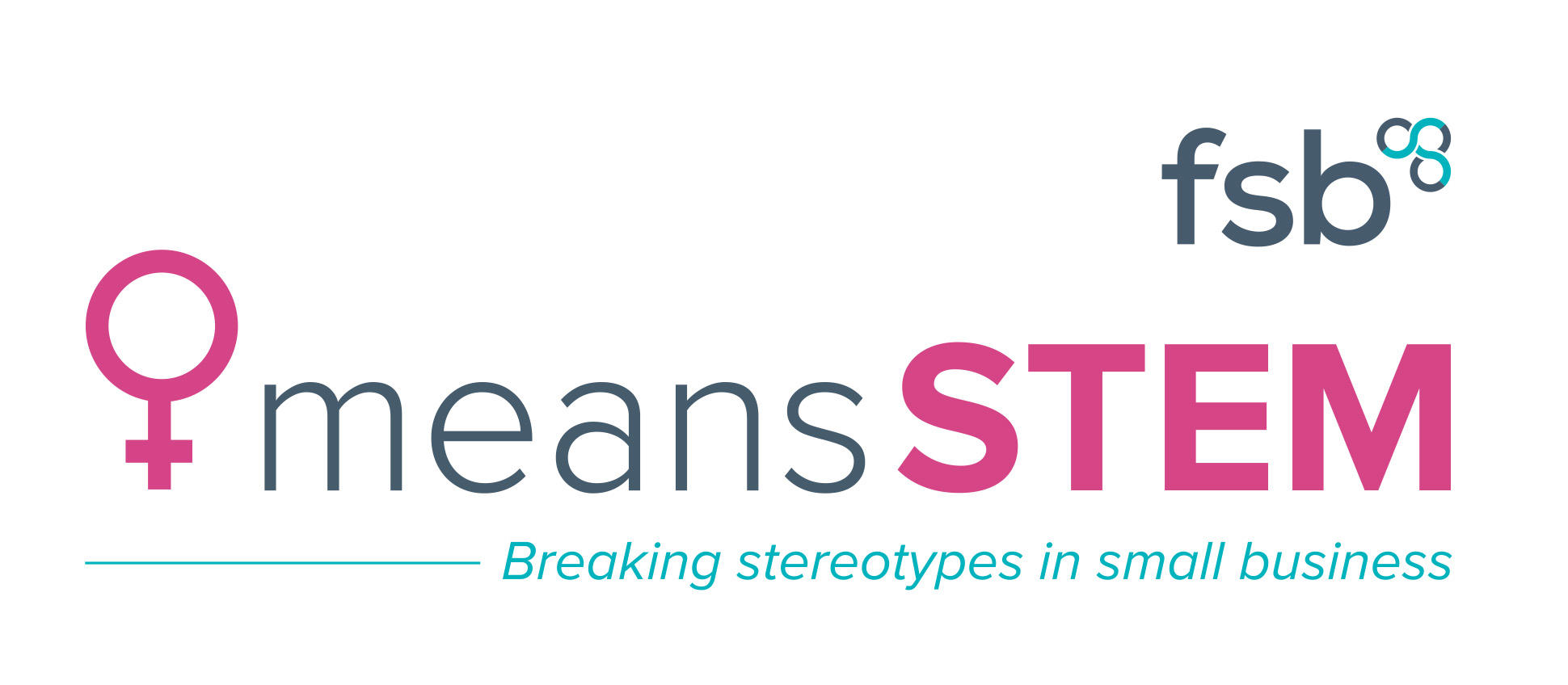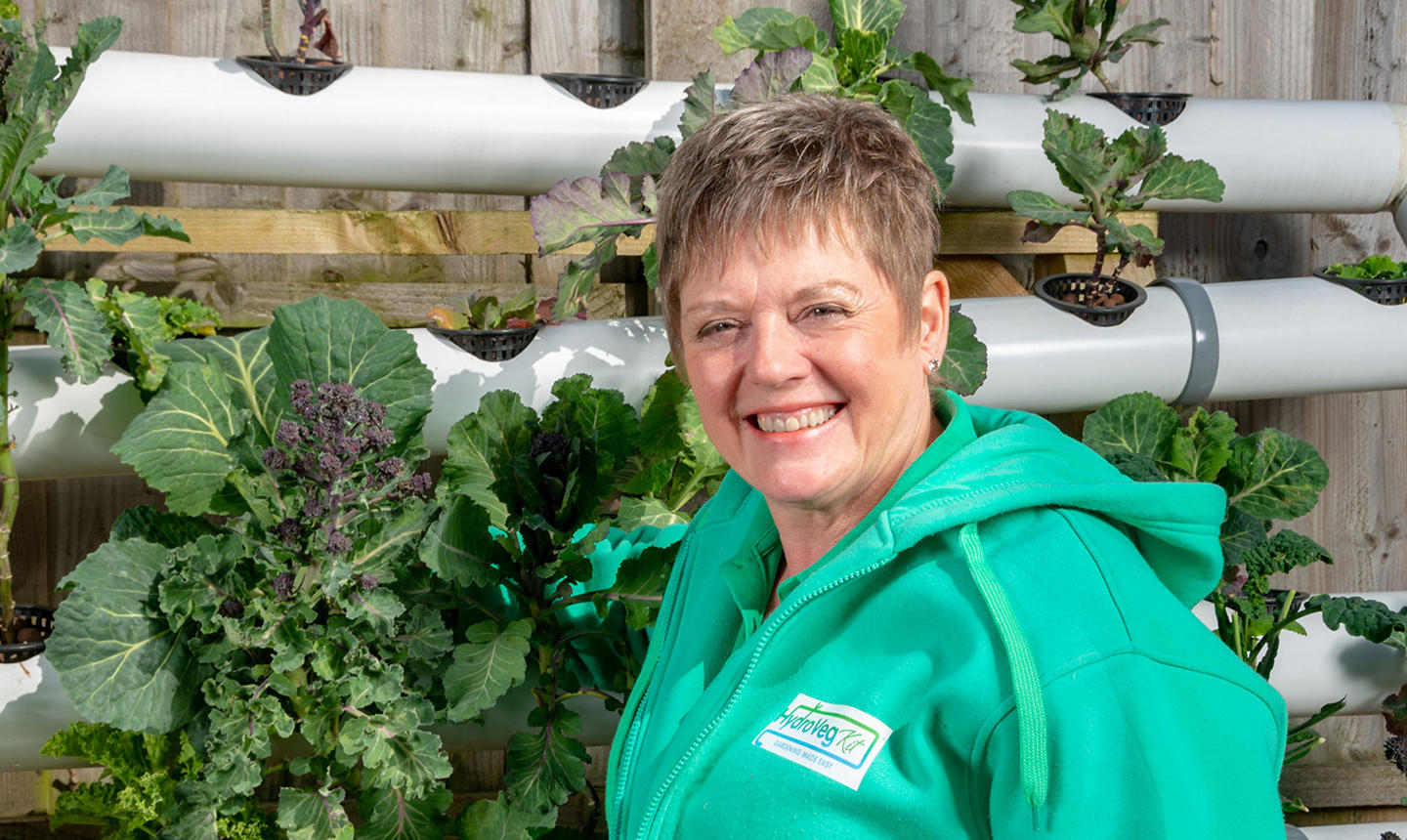This campaign was active during 2020
She Means STEM: breaking stereotypes in small business
The inspirational stories of women who are going against the grain and breaking stereotypes in STEM and small business.
- You are here:
- Homepage
- Resources
- Content hubs
- She Means STEM: breaking stereotypes in small business

What are FSB doing?
The theme of this year’s International Women’s Day is #EachforEqual, with a mission to celebrate women’s achievement and to combat gender bias. To mark IWD, FSB are exploring STEM (science, technology, engineering and mathematics) and the inspirational women who are running their own businesses in STEM.
The UK is currently experiencing a STEM (science, technology, engineering and mathematics) gap with businesses struggling to fill STEM-related vacancies. This gap widens even further when we look at women specifically. Figures from WISE (Women in STEM workforce) show that around 900,000 women currently work in STEM. This makes up just 23% of the entire STEM workforce. These numbers are even lower when you consider the number of women starting their own business in a STEM-related profession. Science, technology, engineering and mathematics.
In FSB’s report ‘Supporting Women’s Enterprise in the UK: The Economic Case’, FSB called for the Government to increase the visibility of role models for women entrepreneurs. The She Means STEM is trying to achieve this by telling the stories of inspirational women who are running their own businesses in STEM. They are all women in STEM and they are all helping to break stereotypes in small business.

Supporting Women's Enterprise: The economic case
FSB report investigating what women owned and led small businesses contribute the UK economies and to employment.
Stories from women in STEM
Joanne James - supporting start ups in science
Growing up with a father in the RAF, I dreamed of being a pilot. Discovering, aged 9, they don’t have “lady pilots” - they do now, of course - I quickly determined I would be a Scientist. I had aspirations of becoming a medical research scientist in California, so much more cutting edge and exotic than Scotland!
I applied both to British Airways, and to university. With unconditional offers, I accepted a university place, and BA replied politely, “good decision”.
At the University of Aberdeen I studied Pharmacology, followed by a Masters’ in Biochemistry, researching effects of Cholesterol on Alzheimer’s. At a cross-road, would I continue in Academia, or join the Pharmaceutical Industry? Or take up the out-of-the-blue invitation by BA in their new recruitment drive? A PhD in Plastic Surgery and Burns, sponsored by the Piper Alpha Disaster Fund, caught my eye. I knew this was for me.
In 1998, I graduated with my PhD in Medicine; I was fortunate to have a wonderful clinical mentor, to experience a mix of attending clinic and the operating theatre as well as a very enjoyable 6 months research at the AMC in Amsterdam. Subsequently, I was head hunted to a Post-Doc position for a “spin out” at the University of Dundee. My path was set.
Via the Wound Healing Research Institute in Cardiff, and the Dental Institute at Queen Mary University London, I formed a niche of clinical- academic - commercial partnerships. After 12 years in academia, and three children later, I was offered an opportunity and a risk. With support of my husband and some super colleagues, namely Profs Arthur Tucker and Atholl Johnston, I left my tenured position and took on the role of developing a biotech start-up with a salary attached. It was a steep and exciting trajectory; huge successes, clinically, commercially and academically, interspersed with tremendous bureaucratic and managerial frustrations. I led the team to win Global awards, grant funding, and the design and initiation of one of the largest, successful trials of its kind including treatment of the diabetic foot, through Venture Funding, and a management takeover.
In 2017, I came to the conscious decision to leave the company, in what I can only describe as a “brutal” exit. I picked my confidence off the floor and established my consultancy.
StewartMedScience, originally founded in 2011, having been invited to act as scientific advisor for a start-up in Sports & Medical Nutrition, was properly open for business.
These days I introduce myself as an independent consultant or director in clinical development. I work with and help biotech and pharmaceutical start-ups. My business, and my reputation are growing. Work comes through existing contacts, word of mouth and a growing network. It offers the flexibility to juggle children, home and school responsibilities, while often demanding all my attention at all hours. 60 hrs one week, 0-5 the next.
Within the last month I have been among the audience at the CCRA, listening to the most up-to-date clinical research advice from the MHRA, NIHR and NICE, and then (with Matt Hancock) at the launch of the All Party Parliamentary Group for Longevity.
Sophie Carr - accidental mathematician
I’m an accidental mathematician, as I grew with an utter fascination of aeroplanes, and a love of puzzles and Lego. The first STEM achievement I had was gaining a degree in aeronautical engineering and then starting my first job working as an engineer. It was whilst I was working on aircraft trials I became interested in how people became overloaded with information and this led to me completing a PhD in Bayesian Belief Networks. I did this part-time whilst I was working and when I graduate I was a married mum of one, and pregnant with my second. I’ve worked in mathematics ever since and in 2019 became the World’s Most Interesting Mathematician.
I’m also an accidental business owner as I founded Bays Consulting when I was made redundant. With hindsight, it was one of the best things that could have happened.
It let me think about what I wanted to do. The answer was that I wanted to work on technical projects which used my maths and engineering skills. I also wanted to be able to initially work part-time with my young family and later be able to work flexibly (such as being able to work from home and non-standard office hours). To achieve this, the answer seemed to be to start my own company.
Building a business from scratch certainly hasn’t been easy but the company is now over 10 years old and specialises in analytics and data science. What that means in practice is that we use mathematics and statistics to help companies answer questions about, for example:
- How sales patterns can be predicted
- What employees views on investment decisions are
- How the trials of their latest product are developing
I’ve been fortunate enough to work on a diverse range of interesting problems and recently Bays has grown - I now have two fantastic employees. As a company, we’re located across the UK which means that we make use of sharing and collaborating tools to stay in touch and keep our projects on track. Being apart doesn’t impact on our ability to deliver. It also lets Abbie and Sam work around their other commitments. Being responsible for employees was a huge step and I’m proud to say that we aim to be a purposeful company: Bays Consulting is a member of the Living Wage Foundation and each year we ensure that our work supports a charity (last year we all ran the Royal Parks Half for The Young Women’s Trust and I went sailing with the Ocean Youth Trust South
Being a female business owner in STEM is a job I never thought I’d have but one that I absolutely love every single aspect of. I’ve been able to stay in technical work which is what I set out to do but I’ve also learnt that I enjoy being a business owner and through the FSB I’ve met a wonderful community of other female STEM business owners from whom I’m learning so much.
Ifeyinwa Kanu - engineering solutions for environmental problems
I love nature and I am passionate about creating engineering solutions to solve environmental problems. After my PhD in Environmental Engineering at Heriot Watt University, I started up IntelliDigest to provide a more environmentally friendly solution to food waste challenges. This resulted in our ID Box, which is a patented biochemical process that converts inedible food waste to climate friendly material.
My entrepreneurial journey has been hugely supported by organisations that appreciate the social, environmental and Economic impact of our technology such as Business Gateway/Scottish Enterprise, Royal Bank of Scotland Accelerator, WAYRA AI/Blockchain Accelerator, Royal Society of Edinburgh and The Royal Academy of Engineering. We have also engaged with female focused support services such as Investing Women and Women's Enterprise Scotland.

Using the grant supports from these organisations and bootstrapping, I am pleased to have led IntelliDigest to secure a trademark for our technology and secured a manufacturing partnership with a well-known global manufacturer. In addition we have also secured letter of Intent from large hotel chains; Marriott, Radisson and Intercontinental Hotel Group.
I am currently working with a fantastic team that includes myself with a PhD in Environmental Engineering, founder and Director of Helens Communication, a communications expert that has worked with big brands such as Aston Martin, Nissan and a financial expert, formerly a regional director of one of the big banks that is currently the founder and Principal of Edinburgh School of Food and Wine.
Despite IntelliDigest's achievements and potential, it has been a great challenge to raise funding to move to the next level. When approaching investors I've been met with the requirement to have a fully working prototype before they will invest despite developing a patented deep tech, secured global hotel chains for paid trials, secured manufacturing partnership with a global manufacturing chain and working with a very committed team of advisers with complementary skills. This has often led me to wonder if a male founder that had achieved less than what I have would be treated the same way?
I look forward to a future where women who are STEM entrepreneurs will not have to struggle to breakthrough with their invention because of conscious/unconscious gender bias inherent in investor decision making process.

